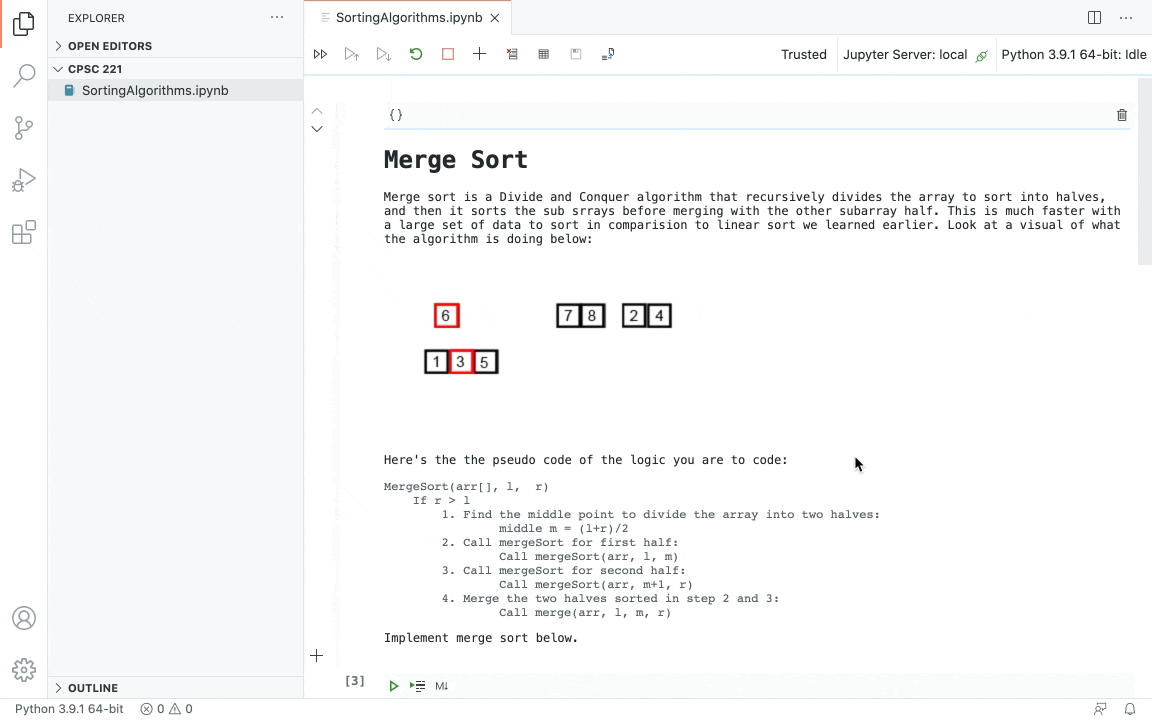

Notebooks can be a perfect way to share and explain your ideas with coworkers or the public community. Notebooks are not only great REPLs, they are also great storytelling devices, allowing you to interleave Markdown elements like images, math equations, and explanatory text with your code. Notebooks are the epitome of a REPL and let you quickly create an environment where you can iterate and work on small chunks of code. If you aren't familiar with notebooks, you might be familiar with REPLs ( read-eval-print loop)? A REPL is an interactive application where you can write a few lines of code and execute the code immediately and see the output. These are all separated into distinct cells and can be interleaved in any order. Novemby Tanha Kabir, are documents that contain a mix of rich Markdown, executable code snippets, and accompanying rich output.

Personally, all I wanted was for these sample averages to come out easy-to-type. Whatever VSCode, you know more about this than I do. The first time I did this it bugged me to choose a kernel? One of the options was recommended so I clicked it. Use Alt-Enter to “run this cell and make a new one.”

Type some python! Like 1+2 or something easy. Create a notebook! At the command prompt (ctrl-shift-P): New Blank Notebookħ. devcontainer/devcontainer.json container definition: "extensions": [Ħ. Optional: to remember this extension installation in future container builds, add it to your. Choose Extensions (Ctrl-shift-X), search for Jupyter, and find Microsoft’s extension.ĥa. It’ll take a while to download that Docker image the first time. It should pop up a window offering to “Reopen in container.” If it doesn’t, enter that at the command prompt (ctrl-shift-P). When it asks what container to use, choose “existing Dockerfile.”Ĥ.

Run my favorite VSCode command (Ctrl-shift-P for the prompt): Add development container configuration files. Create Dockerfile with the following thrilling contents: FROM jupyter/minimal-notebook:notebook-6.4.3ģ. Have Docker, VSCode, and VSCode’s Remote Containers extension.ġ. Here’s a fast path to a Jupyter notebook in VSCode:Ġ. So I had to discover a satisfactory base image and put it in a Dockerfile first. I tried my favorite VSCode command “Add development container configuration files…” but it doesn’t yet have a Jupyter base image (September 2021). Can I just start up a Docker container please? And then if you get all that set up, it runs a web server that you have to log in to. The installation instructions for Jupyter are all like “anaconda” and “pip” and other Pythony concepts.


 0 kommentar(er)
0 kommentar(er)
